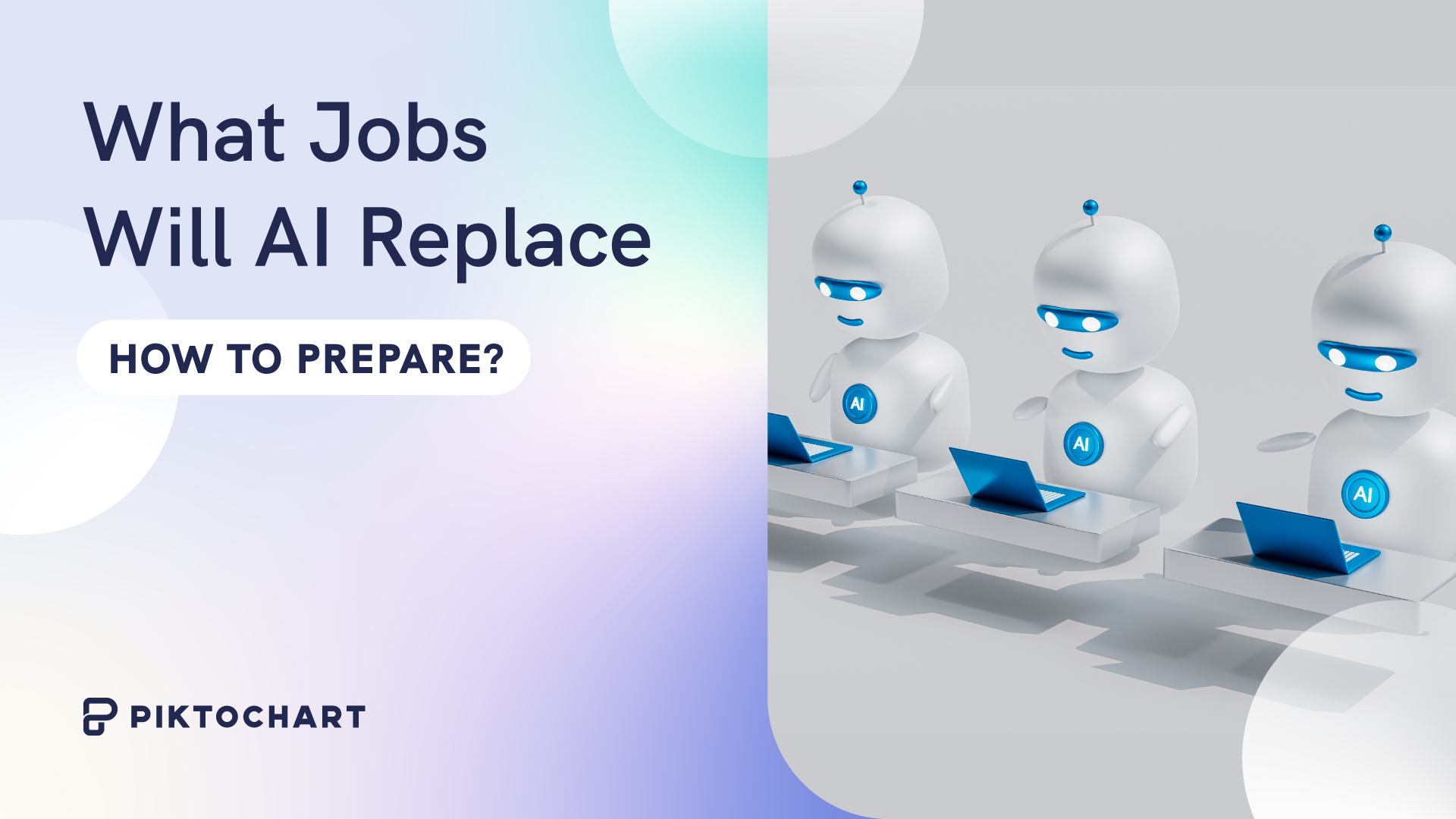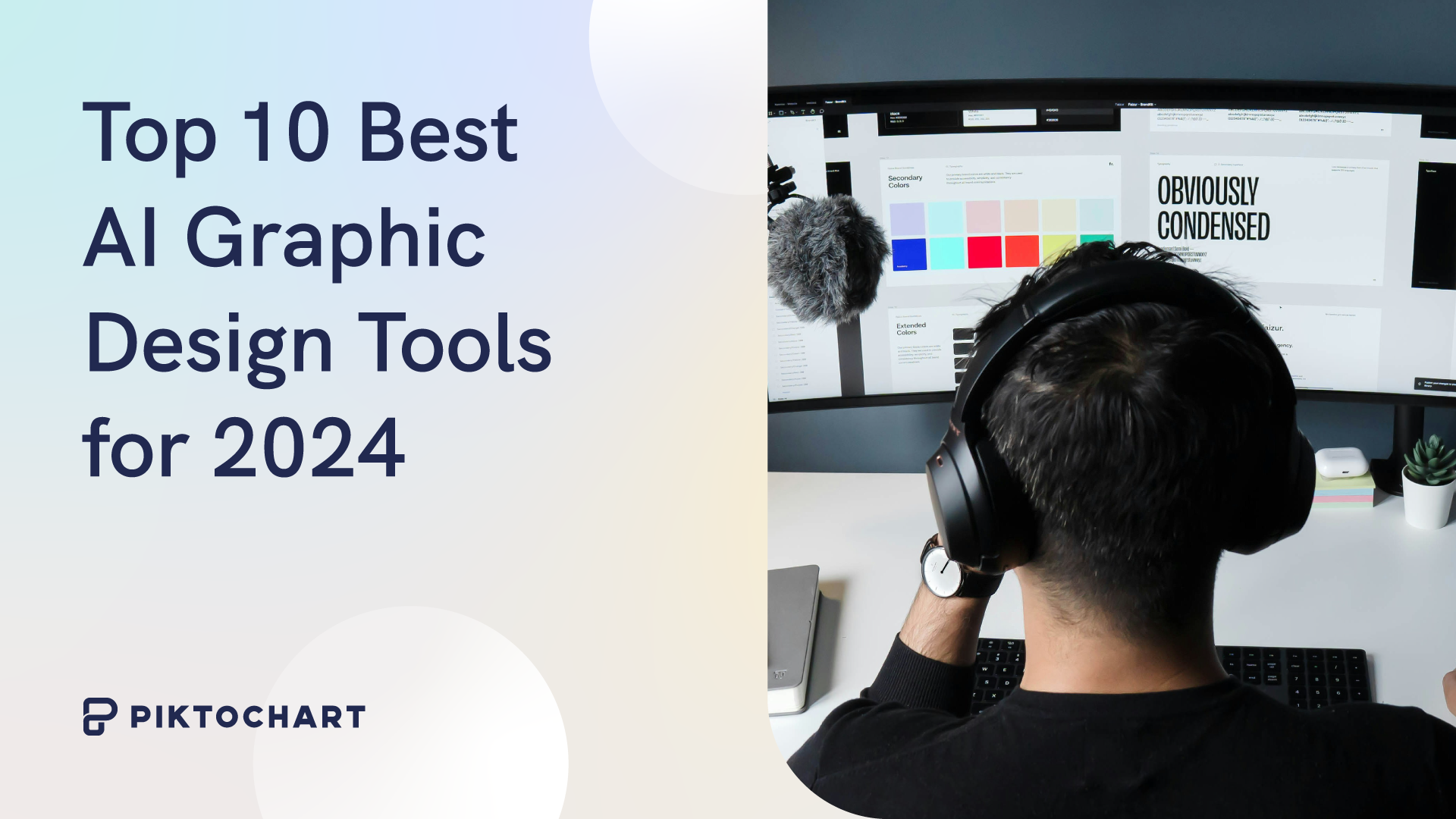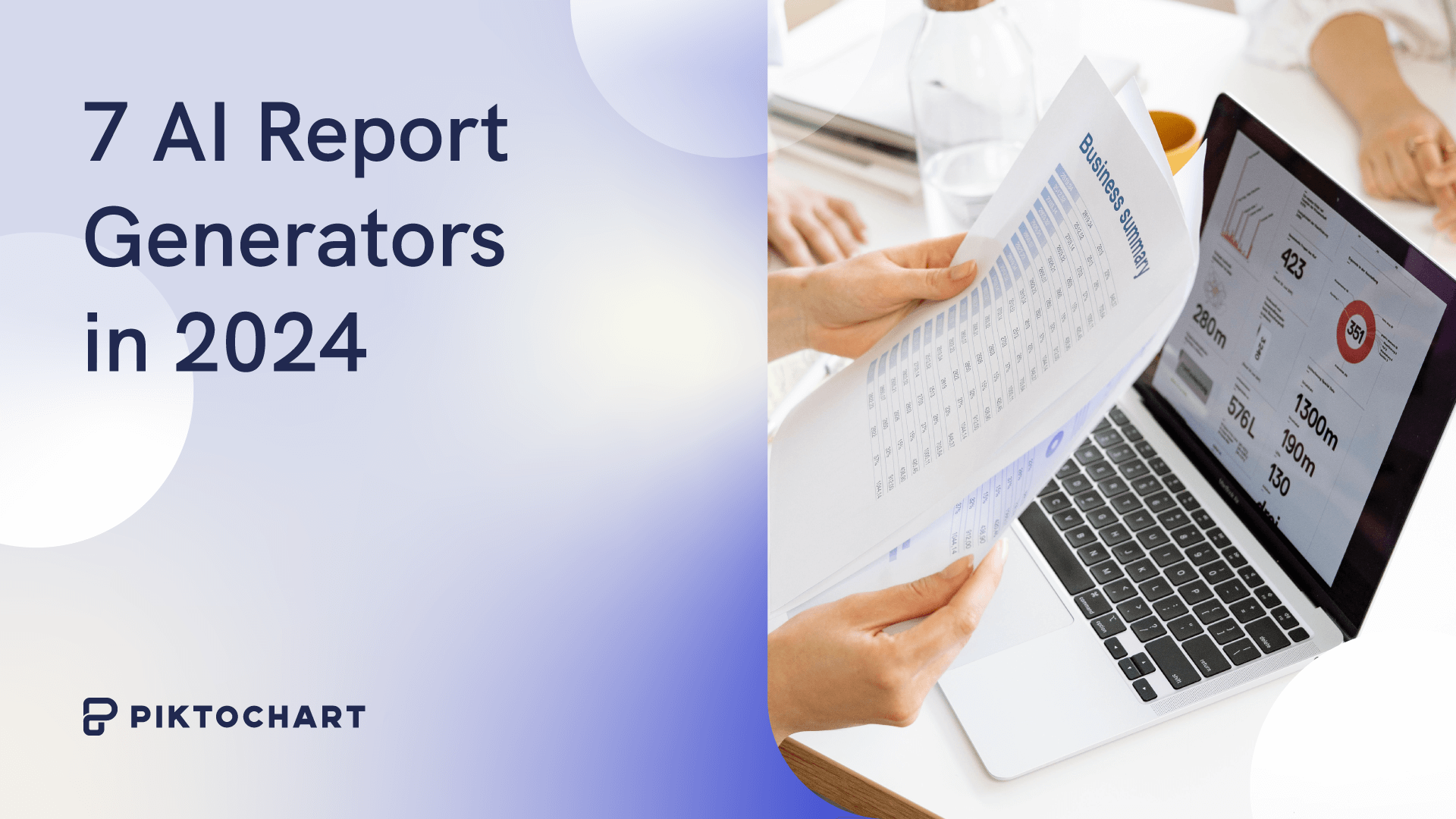Could your next coworker be the computer opposite you? The future of work is knocking on our door, with artificial intelligence leading the charge.
Before large language models were so widely available, it was hard to imagine that AI would have such an impact on our work.
Most Americans have heard of ChatGPT. However, only 18% of have engaged with it—potentially to their own future peril.
Why? Because research indicates that generative AI tools are poised to touch 80% of all jobs.
Here’s the worrying thing. Artificial intelligence can do some of our tasks as well as we can. But it doesn’t stop there. A British AI firm developed an AI system that negotiated a contract with another AI – no humans involved.
This milestone isn’t just a leap forward for tech enthusiasts; it’s a signpost for workers everywhere that the future of employment is shifting beneath our feet.
In this article, we’re peeling back the layers of AI’s impact on jobs, from the boardroom to the breakroom. Whether you’re in sales, services, or the C-suite, it’s time to gear up for the AI revolution. Let’s explore together how to navigate and thrive in a workplace where AI is rapidly becoming the new normal.
Understanding AI’s Industry Reach
As AI gets smarter, you might have wondered if it’s only a matter of time before your job might be on the line? But it’s not all doomsday talk. AI’s also cracking open doors to new gigs in data science, robotics, and the kind of customer service that actually gets you a ‘thank you’.
Sure, AI’s got a ticket to the front row in places like transport and sales, but it’s not taking over everywhere. Jobs that need a human touch — that’s where you shine.
With AI’s growing capabilities stirring up as much hope as it is worry. Yet, it’s crucial to recognize that AI doesn’t threaten all jobs equally. The front lines may waver—transport, sales, production—but roles rooted in emotional intelligence, leadership, and creative thinking still require that irreplaceable human spark.
The current state of AI in the job market
To understand the current state of AI in the job market, it’s important to recognize the impact it has already had on various industries. AI research and development have led to the creation of advanced technologies like ChatGPT and chatbots, which are already being used to replace certain jobs.
Market research analysts, for example, are seeing their roles transformed as AI automates data collection and analysis in the field. Similarly, customer support representatives are being replaced by AI-powered chatbots that can handle routine inquiries, allowing human representatives to focus on more complex and empathetic interactions.
These examples highlight how AI is reshaping the job market, with more jobs likely to be replaced or transformed in the future. It’s crucial for individuals in these industries to adapt their skills and stay updated with the latest advancements in AI technology.
Jobs AI Tools Could Replace

Given this backdrop, it’s clear that AI isn’t just knocking at the door—it’s already in the room, particularly when it comes to data-centric positions. The stark truth is that some jobs AI may shake-up job security for those steeped in numbers and analysis.
The shift is underway, signaling a new era where manual data entry becomes a skill of the past. Now, let’s zoom in on the specific careers most likely to feel this wave of change and discuss how upskilling could be the smart play for those in the path of AI’s march forward.
Retail, Customer Service, and Beyond
Retail and customer service are evolving at a breakneck pace, thanks to AI’s ever-growing capabilities. AiFi, a trailblazing AI startup, is revolutionizing the shopping experience with their technology that keeps tabs on inventory in real-time. They’ve raised an impressive $80 million, signaling confidence in their solution that allows products to be restocked on-the-fly and purchases to be tallied as customers browse.
But AiFi’s success is just the tip of the iceberg in generative AI’s conquest of retail operations, promising efficiencies we’ve yet to fully grasp. On the customer service front, chatbots are stepping in, efficiently handling the barrage of routine questions, freeing up human staff to engage in more complex, empathetic interactions.
Yet, AI is still far from maturity. It’s still miles away from replicating a human touch—those moments that transform shoppers into lifelong patrons.
Transport and Delivery Jobs
The roadways of transport and delivery are at a turning point, and AI is in the driver’s seat. Tesla’s self-driving cars are already cruising our streets, and Google’s autonomous taxi-driving services are legal in three states.
These advancements hint at a future where safety and efficiency are the norms, thanks to AI. But, as these technologies gain traction, job security for roles like truck drivers and couriers may hit a bumpy patch.
It’s true that autonomous driving hasn’t fully taken the wheel yet—long-haul truckers are still high in-demand. Autonomous trucking is expected to happen in waves. And if anything, the industry requires more truck drivers to take over certain parts of the journey. AI is expected to only assist with certain parts of the drive, with the aim to ease the burden on truckers who drive up to 700 miles per day.
However, the technology continues to advance. It’s starting to look more like a question of ‘when’ rather than ‘if’ their jobs will feel the AI impact.
Legal and Paralegal Jobs
A Goldman Sachs report suggested that the legal industry would be heavily affected by AI. It’s tailor-made for the heavy lifting that legal assistants and paralegals are known for—sifting through data, making sense of it, and crafting those all-important briefs and opinions.
However, it’s crucial to note that AI can’t completely replace the human judgment and expertise that lawyers and paralegals bring to the table. While some routine tasks may be automated, the legal profession still requires significant human involvement.
Writers, content creators, publishing industry
The pen may be mightier than the sword, but is it mightier than AI? When it comes to marketing and writing, that’s where AI first got its foot in the door. Even major publications like CNET became early adopters to pen articles with AI (albeit not very well).
The writing desk has changed for many of us who work in content creation: from churning out content in bulk and whipping up article outlines to spinning long drafts from a handful of keywords.
Marketers have taken it to the next level and created their own AI content generators. With a single prompt, you can churn out a whole article based on a keyword.
And now, with APIs in the mix, the market’s swamped with gen AI tools riffing off ChatGPT.
Let’s take it back a step. As CNET discovered, AI’s not ready to snatch the quill from the hands of top-notch copywriters and content maestros just yet. It lacks that spark of originality, that creative fire. It needs a nudge (or a few dozen prompts) to get the tone just right. Even then, there are tell-tale signs that a machine’s in the writing seat.
Financial and Accounting Prospects
Another area where gen AI shines is in finance; specifically, number crunching. Data analysts and data entry clerks can take a breather with the help of AI.
However, artificial intelligence still needs human workers to provide guidance with clear cut instructions. It’ll happily crunch, store, and churn out analysis by the truckload, but don’t expect AI tools to spot sneaky anomalies in your spreadsheets. After all, it doesn’t know what it’s looking for without pre-programming, and those kinds of errors can crop in all forms.
Manufacturing
For years, professionals in the manufacturing industry have had to learn how to adapt in the face of new technology. With this new round of tech evolution, there may be another upheaval.
A report from MIT hits hard: 400,000 manufacturing jobs were replaced by tech from 1990 to 2007. By 2025? That number could leap to 2 million.
Jobs that are Safe from AI Displacement
The job landscape is shifting, but it’s not all going to the bots. AI’s flexing its muscles in the automation gym, but there are many roles that can’t be replaced because of one factor: the human touch.
Coding and software developers
The keyboard may have started to replace the pen, but can AI replace the coder?
If you’re expecting a cruel twist of fate where the creation overcomes the creator, it’s pretty unlikely. If anything, AI’s debut isn’t axing jobs but turbocharging them as productivity potentially increases by 27%-35%. Devs can enhance efficiency by programming AI to automate repetitive coding or other banal tasks.
Tools like ChatGPT and Google Bard can write code pretty well. However, they’re more like co-pilots rather than the main driver. We still need the judgement and critical thinking behind the code, which is why it’s unlikely that these jobs will be at risk of being outsourced entirely. If anything, programmers will need to learn how to integrate AI in their workflows.
Educators
In the classroom, some teachers are eyeing AI warily, fretting over becoming redundant. Yet, many are harnessing AI to streamline lesson planning and make homework a breeze for students.
But here’s a heartening fact: AI’s no substitute for the soul-stirring human spark that lights up learning. It falters at tailoring lessons for the rainbow of student needs and, frankly, teaching Johnny to read? That’s pure teacher magic.
So, educators aren’t heading for the exits; they’re simply adding a new, AI-flavored string to their bow, blending tech with touch.
Healthcare and Compassion
In the life-and-death stakes of healthcare, AI’s not about to fill a doctor’s shoes. Sure, it’s pretty good at retrieving patient details and tidying up hospital records, but when it comes to the nuanced needs of patients, it’s human wisdom that counts.
AI will likely be the ultimate support crew, not the lead player. Doctors, nurses, and healthcare professionals can wield AI to supercharge their care, but the heart of the job? That’s human through and through, with empathy and judgment AI can’t mimic.
Graphic Designers
Text-to-image apps like Midjourney and Dall-E stirred a frenzy when they were first released. These AI visual design tools helped non-designers turn their craziest dreams into reality by whipping up visuals from mere prompts.
But as the dust settled after all the testing, the reality is that the results can be hit or miss. For example, creating faces is still a huge challenge for AI to do reliably.
Graphic design pros have little to sweat over for now; their creative chops are leagues ahead. AI is definitely a tool, not a rival here.
The Limitations of AI (and Why it Won’t Replace Some Jobs in the Immediate Future)
In the shifting sands of the job market, AI is a wild card—not the end of work as we know it, but a catalyst for change. It’s reshaping the terrain, automating the routine while flagging roles ripe for reinvention.
Clearly, AI is great at data analysis and streamlining repetitive tasks. But why can AI not outright replace public relations managers or marketing managers?
When it comes to the irreplaceable human qualities—empathy, creativity, the spark of intuition—AI is still lacking. With some clever prompts, it can imitate facets of empathy, but it can’t replace this soft skillset of its human counterparts.
On top of human empathy, it lacks the innovation of human creativity. Sure, it can whip up a tune if prompted, but I don’t think AI will ever make art with the same influence as Bohemian Rhapsody, or paint like Van Gogh.
Even if AI technologies in the near future that becomes excellent, AI powered systems should serve as a tool that assists people with their work and create millions of jobs instead of taking them away.
Still early days to tell how far AI’s ability to streamline work is, but the landscape is changing fast.
How to Prepare for Generative AI Integration
Brace for impact because generative AI is about to make its grand entrance. Whether it’s your boss planning to integrate AI into workflows or you’re thinking of learning how to use it for your own tasks, AI powered software will affect you sooner than you think.
There’s still time to prepare, but that means staying agile, staying informed, and staying ahead. So, let’s roll up those sleeves and prep for the AI alliance that’s rewriting the rules of the game.
Embrace it and step up
If there’s a part of your job that can be automated, then there’s a good chance that AI can (and will) streamline that area. Instead of worrying about it, take this as an opportunity to move onto more interesting parts of your role. You save several hours to do more strategic things, or improve the company in other ways.
Upskill in AI Management
Understanding how to manage AI systems is becoming crucial. As AI grows more prevalent, the ability to oversee its integration and effectiveness in your organization will be invaluable, positioning you as a knowledgeable leader in this emerging field.
Align with AI Growth Areas
Identify and move toward sectors where AI’s influence is growing, such as AI ethics or policy. These areas require a deep understanding of both technology and its broader impact on society, offering new career paths for forward-thinking professionals.
Cultivate Interdisciplinary Collaboration
Develop the ability to work across different areas of expertise, especially as AI becomes a more integral part of various business sectors. Effective collaboration between tech and non-tech teams is essential for successful AI integration.
Augment AI with Human Insight
Leverage your unique human perspective to enhance AI’s analytical capabilities. By interpreting AI-generated data with a critical eye, you can provide context and insights that go beyond raw numbers, ensuring that decisions are informed by both data and human judgment.
For example, an experienced truck driver can transition to become a fleet manager, sharing their knowledge of which routes are the most effective and planning future trips.
Creating new job opportunities thanks to AI technology
The rise of artificial intelligence (AI) is reshaping the job market, with certain roles at risk of being replaced by automation. However, it’s important to note that not all jobs will be replaced by AI. Jobs that require human interaction, creative thinking, complex problem-solving, and critical thinking are less likely to be automated.
Skills such as emotional intelligence, leadership, and interpersonal skills are valuable assets that AI can’t replicate. By focusing on lifelong learning and acquiring these skills, you can protect your job from AI and remain competitive in the future job market.
Embrace the opportunities presented by AI technology, but also invest in developing your uniquely human qualities to thrive in the future of work.
Frequently asked questions
How many jobs will AI replace by 2030?
Forrester’s 2023 report on Generative AI Impact Forecast indicates that 2.4 million jobs will be replaced by 2030. Jobs in the legal profession are predicted to be hit the hardest, with 78% of roles made obsolete due to automation.
As worrying as this sounds, it’s much lower than Goldman Sach’s forecast of 300 million jobs lost by 2030.
Are there any jobs that AI can’t replace?
AI can’t replace jobs that need complex human traits like empathy, creativity, and advanced problem-solving. So this means that roles in healthcare, such as therapists and nurses will be safe, since they depend heavily on emotional intelligence and human connection—elements AI can’t replicate.
Leadership roles where individuals need to make nuanced decisions are also beyond AI’s capabilities.
Will AI replace programmers?
While there may be some tasks that AI can automate for programmers, it’s highly unlikely to replace programmers completely.
The essence of programming is more than just writing code. It requires understanding complex problems, creativity in finding solutions, and continuous adaptation to new technologies and methods.
While AI can assist programmers by automating some aspects of coding, the core skills of critical thinking, architectural design, and understanding user needs remain uniquely human. AI currently lacks the insight and innovative thinking that human programmers bring to software development. That’s why programmers will continue to be integral, using AI as a tool to augment their capabilities.




